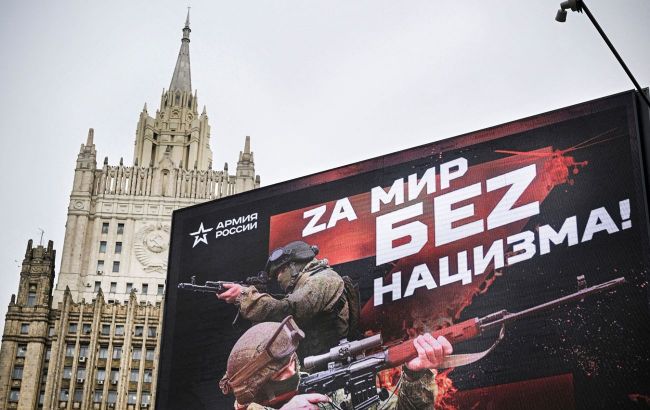Russia copying ISIS propaganda methods, experts warn
 Russia adopts ISIS tactics (Illustrative photo: Getty Images)
Russia adopts ISIS tactics (Illustrative photo: Getty Images)
European media warn that Russian intelligence services are using recruitment methods similar to ISIS practices, leveraging disinformation and social media, according to a post by the Center for Countering Disinformation on Telegram.
According to several European outlets, Russian intelligence is conducting targeted information-psychological operations within the EU, using approaches similar to those employed by ISIS between 2013 and 2019.
These communication campaigns focus on marginalized Russian-speaking groups, offering ideologically appealing narratives, religious or nationalist, and drawing them into online communities, where the spread of disinformation accelerates radicalization.
Recruitment mechanism and tasks of recruits
Recruited individuals initially receive small tasks: gathering intelligence, setting fires, passing on information about military and critical infrastructure, and other one-off actions. Experts note that key factors in recruitment are economic vulnerability and a willingness to adopt the offered ideology.
The goal of the scheme is to create a network of so-called disposable agents: low-cost operatives acting from EU countries to sow distrust in national institutions and undermine public order.
Consequences and recommendations
Such interference increases polarization and fuels protest sentiments, while also complicating the work of security services. Specialists advise authorities and society to strengthen engagement with vulnerable communities, promote media literacy, promptly dismantle disinformation hubs, and work more actively with social media platforms to remove propaganda content.
In the occupied areas of the Zaporizhzhia region, the Russian administration spreads false stories about Ukrainian universities, attempting to intimidate students and discourage them from leaving the occupied territories.
Furthermore, Russian educational institutions plan to introduce so-called lessons of the past, styled as wartime lessons, which effectively become a tool for propaganda and the militarization of school education.

